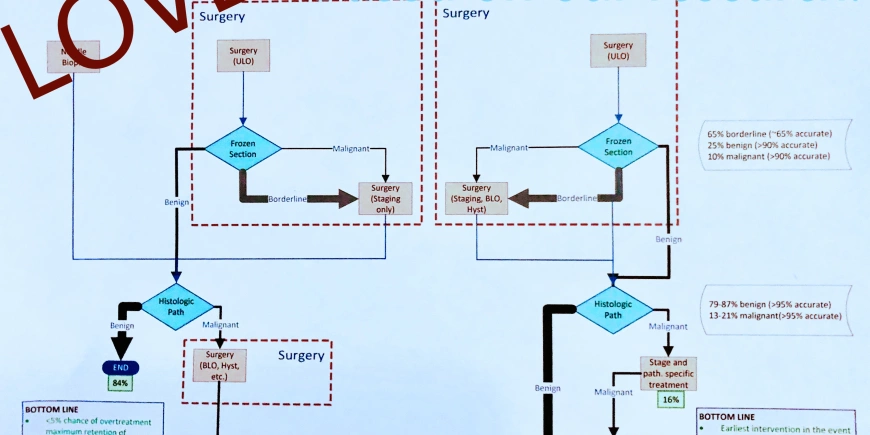Patient Advocacy and Are You Informed?

How do you become informed?
The CT SCAN was clean!!! No lesions, tumors, or enlarged lymph nodes seen (except the orange-sized mass on my left ovary, of course). Again, not a guarantee, but that was really, really good news.
My business partner (also an RN patient Advocate) and I work with a lot of clients. Sometimes they want us to help them find a retirement community or a rehab center for mom or dad. Sometimes they want us to be at all their doctors’ appointments to take notes and ask questions. Sometimes they need someone to coordinate their care, so all their healthcare providers are on the same page AND some want us to help them figure out what their best treatment options are.
I learned a doozy on this one as I started to gather information to educate myself on the course of treatment and my options. How about a bullet list? Better than ALL CAPS SCREAMING MY TIPS FOR THE DAY, RIGHT???
TIPS FOR TODAY:
What “INFORMED” looks like for each one of us is unique and individualized. This is important, and I emphasized this in the last post. Go sit in the medical library at OHSU and read peer-reviewed journal articles until you are blue in the face or get very curious and ask your doctor A LOT of questions or feel good knowing that your doctor has your best interest at heart and will take outstanding care of you. Hire a patient advocate to do the work for you (nice plug right? See how I snuck that in there?) or use your network of people and build yourself a team to help you figure out what it means to be informed. IT DOES NOT MATTER HOW YOU GO ABOUT BECOMING INFORMED, AS LONG AS IT IS WHAT FEELS RIGHT FOR YOU! AND: at a bare minimum know why, what, how, who, benefits, risks, alternatives…Ok?
FOR ME- it looked something like this:
First and foremost: I had to SLOW THE URGENCY TRAIN DOWN for two seconds. I had my nurse advocate remind me that my surgery was scheduled two weeks out- I had time. I did not need to have a decision right then and there. That was so helpful because I seemed to get some space and perspective from this slow down. You might NOT want to slow the “urgency train” down in a true emergency…just sayin’.
First and second most: I had another Nurse advocate (friend) tell me that researching and learning all about treatment options post-surgery (if it turned out to be cancer) could go on the back shelf. No need to even go down the “What if I have cancer, then what…. chemo, radiation, more surgery rabbit hole…” until I knew what I was dealing with. No need to knock on that door. She was right. That seemed to create even more space to think straight.
Bottom line- ASK FOR HELP and have a support system in place if you can. This is where my advocate was really helpful. Having her to lean on and to bounce stuff off of was invaluable. The fact that she is a nurse is also very helpful because she speaks medical language and understands more what everything means. Not to mention the fact that she went to almost every appointment with me!
I called on my peeps who have access to medical libraries and had them find me the latest research using keywords like: ovarian mass, borderline ovarian tumor, ovarian cancer, hysterectomy and oophorectomy (go look that one up, people).
Find smart people to read the material and summarize it for you at a 5th grade reading level. I am not kidding. I consider myself of average intelligence and, normally, I can read through a research article and get the basic points. However, when you are the patient it is not that easy. I found it very hard to be objective because any bias I had towards one article I thought was in my favor- any opposing view went in the garbage. Now how is that for being informed??? Not so much, right? So, while I read a ton- I had to stop and put it in the hands of someone who could be more objective and make it easy to understand. Once you go into “analysis paralysis” all bets are off. Plus- I got a visual “Decision Tree” out of it! Like it??? (see image) LOVE my husband!
Be wary of Dr. Google. Use credible sources. Remember CBC and CMP? I like www.mayoclinc.org for things like this. Pretty straightforward information from a reliable source. There are, of course, many other good sources out there in cyberspace AND there are some NOT SO GOOD sources.
Talk to people. I talked to my primary GYN/ONCOLOGY doctor, a radiologist who specializes in women’s health imaging, my naturopathic doctor, several other naturopathic doctors (in and out of state), a naturopathic oncologist, women who have had hysterectomies and even a foundation dedicated to helping women learn about hysterectomies and oophorectomies. Get a second opinion from a different doctor if you need to, there is nothing wrong with THIS. AT. ALL.
Finally, if you love your doctor (and you will know by how you feel when you’re with him/her) then have a very honest discussion about what you would like to see happen. I have to tell you, I took my doctor’s recommendations very seriously. At the end of the day- I would not be making a very informed decision without him. I just think that while it is, ultimately, my decision, I would prefer that we come to a decision together.
So, there you have it! Due diligence FOR ME. You might be wondering what I decided to do? You will have to read the next blog:-)
